Cs – Drawing Lots 16: 7-10
Drawing Lots
16: 7-10
Drawing lots DIG: In what way was the goat for Azazel different than the second bird in the leper’s purification ceremony? As important as this Day was to Isra’el for restoring a correct relationship with God, how much more important and lasting in Yeshua Messiah’s “once-for-all” sacrifice (see Hebrews, to see link click Cd – Messiah’s Sacrifice Was Once for All Time)?
REFLECT: The role of the two goats shows us that no single offering could fully typify the sacrifice of Yeshua Messiah, “the Lamb of God, who takes away the sins of the world” (John 1:29). What aspect of His atonement is typified by the goat that was sacrificed as a purification offering? What distinct aspect of Messiah is typified by the scapegoat?
For forty years before the destruction of the Temple,
the scarlet thread never turned white but it remained red.
After confessing his sins and the sins of the priesthood over the bull (to see link click Cr – Confessions Over the Bull), the high priest then had the two goats brought before him. One of the goats was to be a purification offering (see Al – The Purification Offering: Purified by Blood) to ADONAI. The other was to be released into the wilderness for Azazel, or as it is usually translated . . . scapegoat. Unfortunately, we are uncertain what Azazel means. It seems to me that the best interpretation is that Azazel is a compound term, consisting of the noun ‘ez (goat) and the verb ‘azal (to go away or disappear), that is, “a goat that goes away or disappears.” This leads to the traditional rendering of scapegoat, since the goat departs bearing all the sins of the Israelites.
In Jewish legend, Azazel is the proper name of a fallen angel. Most of the later commentators have steered away from this “supernatural” explanation of Azazel because it seems to imply that the Torah was sanctioning a sacrifice of a demon. This is certainly not the case, even if Azazel should be understood as the name of an evil spirit or Satan himself. The second goat, the one for Azazel, was not an offering. It was meant to carry away the sin and impurity of Isra’el. The scapegoat was never sacrificed. It was simply released into the wilderness. In later Jewish tradition, it was pushed over a cliff to dispose of it (Yoma 6.6), but it was never regarded as a sacrifice.

The high priest was to take the two goats and place them before ADONAI at the entrance to the Tabernacle, where the book began (1:1), and where ceremonial events took place throughout Leviticus. Then Aaron is to cast lots for the two goats, one lot for ADONAI and the other for Azazel (16:7-8). The term lot (Hebrew: goral) occurs here for the first time in the Bible and only in this chapter in Leviticus. The practice may refer to the mysterious Urim and Thummim (see the commentary on Exodus Gb – The Urim and Thummim: The Means of Making Decisions) but we don’t know. Instead of concern about how the lots are cast, the focus is on the fact that either goat might be chosen. The decision remained with God.277
The Mishnah describes how the goats were designated for their respective roles by drawing two lots (Yoma 4.1). Standing before the two goats, the priest drew lots to determine which goat would be the goat for Azazel. Two lots were shaken, one entitled “for ADONAI,” and one entitled “for Azazel.” The high priest would draw one lot with his right hand and place it on the head of the goat on his right. The other lot he drew with his left hand and placed it on the head of the goat on his left. The high priest would then declare the goat chosen to be the purification offering by raising the hand of the lot that had come up in and saying, “For YHVH.” When the worshipers heard the name of the LORD pronounced, they would all respond, “Blessed is the name of the glory of His Kingdom forever and ever.”
Interestingly, the Mishnah also records that the two goats were differentiated by the means of a scarlet thread. The high priest tied a scarlet thread on the head of the goat which was to be sent out into the wilderness, and turned it around (with its back to the Sanctuary) to face the way it would be sent out (Yoma 4.2). Another scarlet thread was tied to the gate of the Tabernacle or the door of the Temple. Jewish tradition records that when the goat died in the wilderness, the red thread that was tied to the Temple gate turned white. When Isra’el saw this, they knew that YHVH had accepted their sacrifices and all their sins had been forgiven. This may be why the prophet Isaiah said, “Come now, let’s settle this,” says the LORD. “Though your sins are like scarlet, I will make them as white as snow. Though they are red like scarlet, I will make them as white as wool (Isaiah 1:18). But around the time of Messiah’s death, it was reported that the scarlet thread on the door of the Temple stopped turning white. “For forty years before the destruction of the Temple the scarlet thread never turned white but it remained red” (Rosh Ha’Shanah 31b, Babylonian Talmud, Soncino Press Edition).
The incorporation of the scarlet thread is not mandated in the Torah. It is based only on tradition. However, the use of the scarlet thread is yet another common element between this purification ritual and the ceremonies of the leper (see Ch – The Initial Procedures for Cleansing Leprosy: The leper needed to bring six items) and the red heifer (see Df – The Red Heifer).278
This choice anticipated the use made of the two goats. The goat selected to be the purification offering would be sacrificed so that its blood would purify the Most Holy Place. Aaron presented the goat whose lot fell to ADONAI and offer it as a purification offering. The remaining goat survived and the sin of the people was transferred to it; therefore, it atoned for their sins. But the goat whose lot fell to Azazel is to be presented alive to ADONAI to be used for making atonement (Hebrew: kophar) over it by sending it away into the desert for Azazel (16:9-10).279
Dear Heavenly Father, I praise You for how great, kind, wise and merciful You are! You paid the very painful and costly price of death for my sins (First John 2:1c-2). You also give another great gift of removing my sins far from me (Psalms 103:11-12). On top of those precious gifts: You also bless me with the magnificent gift of Yeshua’s righteousness (Second Corinthians 5:21). Thus, the requirement for me to enter heaven has been met. May I live my life in thankful appreciation for how great a cost You paid for my ransom. In Yeshua’s holy name and power of His resurrection. Amen
Kophar is a verb from noun kopher, meaning to cover over, pacify, or to make propitiation for. Propitiation is the averting God’s wrath by means of a vicarious (substitutionary) and efficacious (producing the desired effect) sacrifice (death), foreshadowing the Messiah (the atonement). It is the work of Messiah which satisfies every claim of God’s holiness and justice so that YHVH is free to act on behalf of sinners.
The verb kapher can be seen in Genesis 6:14 where Ha’Shem told Noah to make an ark and cover it with pitch (kaphar) both outside and inside. In addition, when Moshe’s mother Jochebed could not hide him any longer, she and her husband defied Pharaoh’s decree and hid the baby (Acts 7:17-20). She got a papyrus basket for him and coated it with tar and pitch (2:3a). The Hebrew word for basket used here is the same word translated ark in Genesis 6:14. It was coated with tar and pitch just like Noah’s ark was and it was built for floating, just like Noah’s ark. The Hebrew word for pitch is kaphar, and translated atonement elsewhere in the Bible.



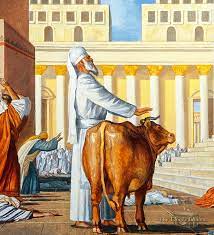
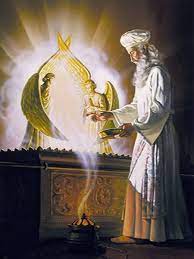
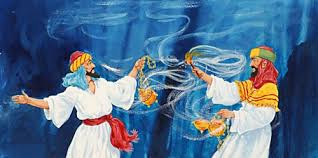
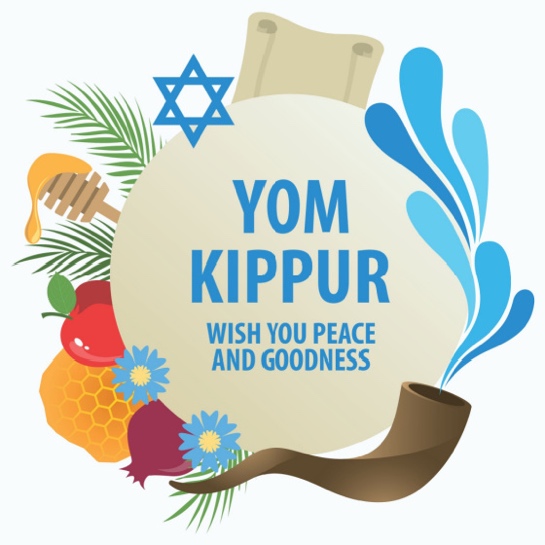

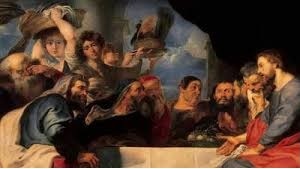 Porque antes que vinieran algunos de parte de Jacobo, (Pedro) comía con los gentiles; pero cuando vinieron, se retraía y se apartaba, teniendo temor de los de la circuncisión (2:12). La palabra retraía (griego: de hupostello) se usa con frecuencia para describir operaciones militares estratégicas. Esto sugiere que fue parte de la estrategia de Pedro en las circunstancias en las que se encontraba. Las palabras, retraía y apartaba están ambas en tiempo imperfecto, lo que indica que Pedro no comenzó a retraerse y separarse de las mesas de los gentiles de una sola vez, sino gradualmente, bajo la presión constante de los visitantes de Jerusalén. La renuencia de Pedro a separarse inmediatamente de los gentiles fue probablemente lo que los ofendió a ellos.
Porque antes que vinieran algunos de parte de Jacobo, (Pedro) comía con los gentiles; pero cuando vinieron, se retraía y se apartaba, teniendo temor de los de la circuncisión (2:12). La palabra retraía (griego: de hupostello) se usa con frecuencia para describir operaciones militares estratégicas. Esto sugiere que fue parte de la estrategia de Pedro en las circunstancias en las que se encontraba. Las palabras, retraía y apartaba están ambas en tiempo imperfecto, lo que indica que Pedro no comenzó a retraerse y separarse de las mesas de los gentiles de una sola vez, sino gradualmente, bajo la presión constante de los visitantes de Jerusalén. La renuencia de Pedro a separarse inmediatamente de los gentiles fue probablemente lo que los ofendió a ellos.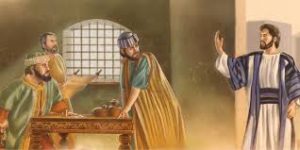 அப்போது பாவிகளின் மீட்பர் அவரிடம்:
அப்போது பாவிகளின் மீட்பர் அவரிடம்: 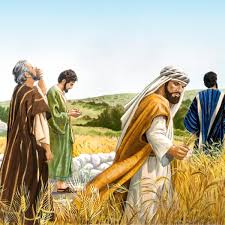
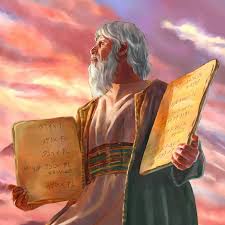 पांचवां और आखिरी गवाह मोशे था.
पांचवां और आखिरी गवाह मोशे था.